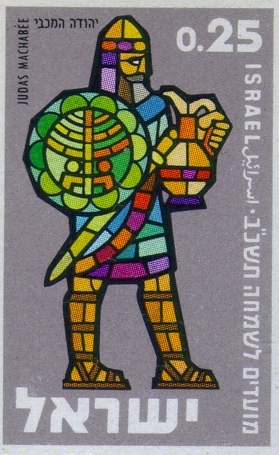From Story to History
One of the most enduring legacies of the Maccabean Revolt are its stories. Vivid and moving, these tales of heroism, piety, unity, and deliverance were designed to inspire. With language and form, the authors of 1 and 2 Maccabees evoke biblical narratives of earlier heroism and valor, making a kind of diptych pendant to the accounts of Joshua’s conquests and the rise of King David. Yet they also follow the conventions of Greek historiography, sprinkling their stories with descriptive details that suggest these are accurate depictions of actual events.
Narrative verve notwithstanding, a growing body of literary and archaeological research is raising pressing new questions about the about the books’ historical legitimacy. Scholars recognize that the authors’ ideological, even propagandistic, impulses make the project of distinguishing facts from fictions a compromised and even arbitrary endeavor.
New approaches and new data sets inspire big questions. What is the relationship between narrative testimony and contemporary material remains? What should we retain of older historical interpretations? How should we now read these stories? Ultimately, how does story fit into history?
From Past to Present
We launch The Maccabees Project with these questions in mind, animated by the prospects of new discoveries and understandings. We are committed to a multi-disciplinary research collaboration involving scholars of biblical studies, ancient history, archaeology, and the history of religion. Over the next several years we will sponsor a series of seminars, colloquia, and public lectures in order to present and review the evidence comprehensively, rigorously, and from multiple perspectives. We hope to gain an appreciation of each piece of evidence in its own right, to explore methods for extracting and synthesizing reliable historical data, and to establish collaborative habits that will benefit future research. In addition we aim to reach beyond academic circles, to religious communities and the general public, so as to promote broader discussion and understanding of some of the fundamental effects of these long-ago events. The stories of the Maccabees have shaped a range of developments—in Judaism and Christianity, in resistance movements and revolts, and in notions of martyrdom and nationalism—from antiquity to the present. By learning more about each in turn, we hope to widen our perspective, clarify our understanding, and ultimately connect the dots from antiquity to today.


